Interpretive Social Science: An
Anti-Naturalist Approach Mark Bevir
Visit to download the full and correct content document: https://ebookmass.com/product/interpretive-social-science-an-anti-naturalist-approac h-mark-bevir/
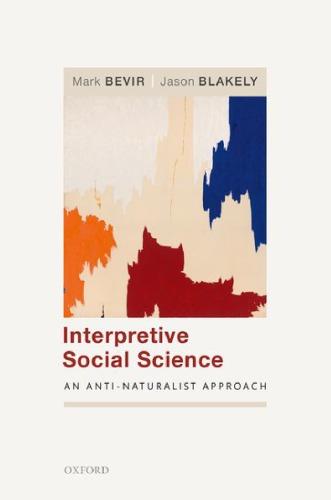
More products digital (pdf, epub, mobi) instant download maybe you interests ...

Computational Network Science An Algorithmic Approach 1st Edition Hexmoor
https://ebookmass.com/product/computational-network-science-analgorithmic-approach-1st-edition-hexmoor/

An Introduction to Management Science: Quantitative Approach 15th Edition David R. Anderson
https://ebookmass.com/product/an-introduction-to-managementscience-quantitative-approach-15th-edition-david-r-anderson/

Anti-Aging Pharmacology Vitaly Koltover
https://ebookmass.com/product/anti-aging-pharmacology-vitalykoltover/
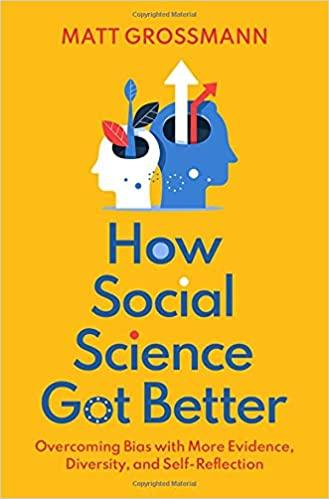
How Social Science Got Better 1st Edition Matt Grossmann
https://ebookmass.com/product/how-social-science-got-better-1stedition-matt-grossmann/

Facial Volumization: An Anatomic Approach 1st Edition
https://ebookmass.com/product/facial-volumization-an-anatomicapproach-1st-edition/

Accountancy and Social Responsibility: An Innovative New Approach to Accountancy Theory and Practice 1st Edition Živko Bergant
https://ebookmass.com/product/accountancy-and-socialresponsibility-an-innovative-new-approach-to-accountancy-theoryand-practice-1st-edition-zivko-bergant/
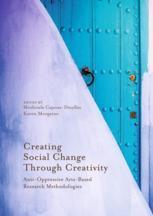
Creating Social Change Through Creativity: AntiOppressive Arts-Based Research Methodologies 1st Edition Moshoula Capous-Desyllas
https://ebookmass.com/product/creating-social-change-throughcreativity-anti-oppressive-arts-based-research-methodologies-1stedition-moshoula-capous-desyllas/
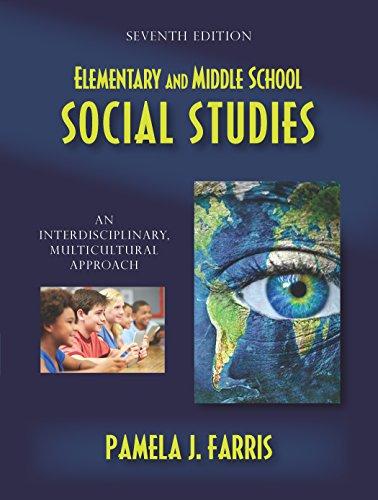
Elementary and Middle School Social Studies: An Interdisciplinary, Multicultural Approach 7th Edition, (Ebook PDF)
https://ebookmass.com/product/elementary-and-middle-schoolsocial-studies-an-interdisciplinary-multicultural-approach-7thedition-ebook-pdf/

Anti-Aging Pharmacology 1st Edition Vitaly Koltover
https://ebookmass.com/product/anti-aging-pharmacology-1stedition-vitaly-koltover/
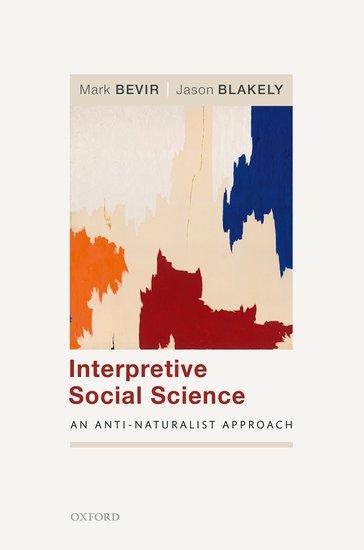
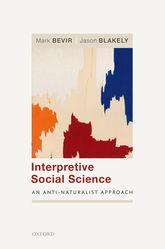
Interpretive Social Science: An Anti-Naturalist Approach
Mark Bevir and Jason Blakely
Print publication date: 2018
Print ISBN-13: 9780198832942
Published to Oxford Scholarship Online: December 2018
DOI: 10.1093/oso/9780198832942.001.0001
Title Pages
Mark Bevir
Jason Blakely
(p.i) Interpretive Social Science (p.ii)
(p.iii) Interpretive Social Science
(p.iv) Copyright Page


Great Clarendon Street, Oxford, OX2 6DP, United Kingdom
Oxford University Press is a department of the University of Oxford. It furthers the University’s objective of excellence in research, scholarship, and education by publishing worldwide. Oxford is a registered trade mark of Oxford University Press in the UK and in certain other countries
© Mark Bevir and Jason Blakely 2018
The moral rights of the authors have been asserted
First Edition published in 2018
Impression: 1
All rights reserved. No part of this publication may be reproduced, stored in a retrieval system, or transmitted, in any form or by any means, without the prior permission in writing of Oxford University Press, or as expressly permitted by law, by licence or under terms agreed with the appropriate reprographics rights organization. Enquiries concerning reproduction outside the scope of the above should be sent to the Rights Department, Oxford University Press, at the address above
You must not circulate this work in any other form and you must impose this same condition on any acquirer
Published in the United States of America by Oxford University Press 198 Madison Avenue, New York, NY 10016, United States of America
British Library Cataloguing in Publication Data Data available
Library of Congress Control Number: 2018942144
ISBN 978–0–19–883294–2 (hbk.) 978–0–19–883295–9 (pbk.)
Printed and bound by CPI Group (UK) Ltd, Croydon, CR0 4YY
Links to third party websites are provided by Oxford in good faith and for information only. Oxford disclaims any responsibility for the materials contained in any third party website referenced in this work.

Interpretive Social Science: An Anti-Naturalist Approach
Mark Bevir and Jason Blakely
Print publication date: 2018
Print ISBN-13: 9780198832942
Published to Oxford Scholarship Online: December 2018
DOI: 10.1093/oso/9780198832942.001.0001
Introduction
Mark Bevir
Jason Blakely
DOI:10.1093/oso/9780198832942.003.0001
Abstract and Keywords
Readers are introduced to the major philosophical paradigms shaping social science research today, including hermeneutics and naturalism. The pervasive influence of naturalism on social scientific research is explained and the interpretive alternative is sketched. As part of this, readers are offered an account of the philosophical origins of today’s social science disciplines with a special focus on the case of political science. At the beginning of the twentieth century a modern, ahistorical, and formal paradigm for the study of politics was formed as scholars increasingly rejected the developmental historical narratives and Hegelianism of the nineteenth century. The chapter concludes with a brief overview of the argument of the book.
Keywords: naturalism,hermeneutics,philosophy of social science,political science,Hegelianism
This book is written for anyone who wishes to understand human behavior better. Some readers might be students and scholars in the social sciences— political scientists, sociologists, economists, anthropologists, and psychologists. Others might be political theorists, philosophers, or free-spirited experts in the humanities or natural sciences. Still others may be policy analysts, political actors, and strategists coping with the world of action. But this book is not merely written for experts and elites. It is also intended for ordinary citizens: tenacious laypeople, inquisitive undergraduates, curious autodidacts, and amateur seekers. No one can live for very long without needing to decode and grasp the behavior of those around them.
One purpose of this book is to argue that anyone who really desires to understand and explain human agency must adopt a “hermeneutic” or interpretive philosophical perspective. But what is an interpretive approach to the social sciences? Many people in the social sciences already think they know the answer. So the most widely read introductions to political science often give a familiar but misleading reply: namely, interpretivism is a “qualitative” method favored by researchers who have a squishy, touchy-feely view of the world. This means interpretivism is just one among various tools (one with a strength for focusing on the analysis of meanings and beliefs) that social scientists can opt in or out of depending on their disposition and research goals.1 On this view, an interpretive approach is basically reducible to activities like conducting longform interviews, hunting in archives, beefing up on foreign languages, doing ethnography, and traveling to foreign countries for case studies. Interpretivism is instrumental because it is a means for achieving some further research goal or aim. It is optional because those who do not share a particular research goal can safely ignore it (much like a piano tuner does not need to bother with a wrecking ball or a jackhammer).
But as we hope to show, this standard conception of interpretivism is seriously wrong. Hermeneutics is non-optional. Anyone from a social scientist to a layperson who truly wishes to grasp human behavior needs hermeneutics. This is because hermeneutics is an entire philosophical paradigm, with consequences for nearly every aspect of the study of human behavior and politics. Specifically, hermeneutics maintains that the study of human beliefs and actions is historical, cultural, and narrative in form. Studying human agency inescapably requires the interpretation of meanings—relating beliefs, actions, and practices to further webs of meaning. Because hermeneutics or interpretivism is a philosophy, it must either be accepted or rejected as a whole. As we (p.2) will show at length in the coming chapters, an interpretive approach cannot be picked up and put down instrumentally without falling into serious confusion and incoherence that does damage to social scientific inquiry.
A second major concern of this book is that although we believe interpretivism is the best philosophical approach to the social sciences, it is also true that interpretive philosophy is itself a broad plethora of often rival approaches developed as part of the “interpretive turn” in the last century or so.2 Indeed, philosophers and social scientists from a wide range of competing and not always compatible traditions have converged on hermeneutics—including phenomenologists, analytic philosophers, Hegelians, American pragmatists, British New Left Marxists, post-structuralists, neo-Aristotelians, social constructivists, and social material relations theorists, to name only a few.3 One of our book’s goals is to identify the family resemblances across some of the major interpretive approaches to research, while at the same time arguing that what we call an “anti-naturalist” framework for interpretive research provides the most consistent, coherent basis for this paradigm. By doing this, our hope is
to vindicate the work of the many brilliant interpretive philosophers and social theorists of the last century while also critically clarifying for readers how an anti-naturalist articulation of this philosophy has an impact on nearly every aspect of social scientific research, from concept formation and methods to empirical inquiry and public policy. Indeed, so profound is the effect of interpretive philosophy on the social sciences that it even opens new areas for empirical study and ethical engagement. Our particular anti-naturalist approach also sheds light on some of the most important social science findings of the last fifty years—placing major contributions to our understanding of social, psychological, economic, and political reality within a coherent philosophical framework. But we are running ahead of ourselves.
For now the first step is identifying the nature of hermeneutics and the interpretive turn. This involves discerning what interpretive philosophy is “turning” away from; what it is rejecting. Indeed, interpretive philosophy originated as a critical response to the dominant philosophical paradigm in the social sciences—a movement known to philosophers as “naturalism.” Anyone who wishes to fully grasp the interpretive turn must first understand the critical dialogue between hermeneutics and naturalism.
Naturalism and the modern social sciences
Naturalism is the general philosophical view that the study of human behavior is analogous to the natural sciences—hence the name “naturalism.” Naturalists have attempted to revolutionize the social sciences by making them look more like the natural sciences in countless ways; these include: searching for (p.3) ahistorical causal laws; eliminating values and political engagement from the study of human behavior; removing or demoting the role of meanings and purposes in favor of synchronic formalism and quantification; and treating social reality as reducible to brute, verifiable facts in need of minimal interpretation. Because naturalism (like hermeneutics) is a philosophy and not simply a method, it is all-pervasive and capable of innumerable variations. Once taken on board, naturalism colors and informs almost every aspect of what are otherwise starkly different research programs and agendas in the social sciences. Naturalism’s protean ability to shape social science concepts, explanation, description, and research will be dealt with in detail throughout the coming chapters. But first we will briefly narrate how naturalism came to dominate the social sciences in order to better understand the current situation and how it has provoked the hermeneutic backlash.
Naturalism’s deepest historical roots reach back to the seventeenth century and the attempt by a group of European intellectuals to model knowledge of ethical and political life on the newly emergent revolution in the natural sciences.4 Thomas Hobbes’s Leviathan is a classic, early example of this ambition. Hobbes opens with a famous attempt to construct a purely materialist psychology of human sense perception by discussing the way an organ like the eye apprehends
material objects. Hobbes linked this materialist account of visual perception to an entire anthropology of the state of nature and a theory of political sovereignty. His goal in doing so was to achieve the same kind of epistemological certainty for the study of human beings found in Descartes’ geometry and Galileo’s scientia. 5 Joining the new advances in mathematics to those of the new natural sciences, Hobbes believed he had discovered a science of politics built purely on material causes and clear logical deductions.
Hobbes is only one of the earliest and most influential attempts to found a science of human behavior modeled on the natural sciences. But many ingenious forms of naturalism were devised and advanced by intellectuals during the seventeenth and eighteenth centuries. For our purposes, we do not need to take a deep dive into naturalism’s past or familiarize ourselves with all its astonishing varietals. Instead, we only need to focus on the birth of the contemporary social sciences, and the particular versions of naturalism used to philosophically orient many of today’s disciplines. The key shift toward the current reign of naturalism occurred near the end of the nineteenth century, when many intellectuals turned away from the historical narratives that had shaped the study of politics and society for a century.6 Specifically, they renounced the nineteenth-century study of human behavior via grand historical narratives of the development of politics and society through organic phases.
Part of the success of this nineteenth-century developmental paradigm had been its ability to encompass many of the otherwise unbridgeable intellectual divides of that age. So, idealists inspired by Hegel sought to explain social and political life as the unfolding of an idea, Geist, or even Providence through (p.4) history, while at the same time their more materialistically minded adversaries wove grand narratives inspired by Darwinism and evolutionary theory.7 Similarly, Victorian students of politics sought laws of historical progress and evolutionist accounts of the societies around them.8 And English Whigs like J. R. Green, William Stubbs, and Edward Freeman conceptualized history as a gradualist culmination toward liberty and the fulfillment of national identity.9 In the United States, Herbert Adams and John Burgess also constructed big, developmental narratives—in their case encapsulating a progressive view of the democratic nation-state that unsurprisingly gave their own country pride of place.10 Even positivists in this century, like Auguste Comte, thought the study of society was organized by constructing grand historical narratives of development. So Comte argued there was a “law of human development” which passed through three historical stages, reaching a culminating form of scientific society.11 To this diverse assemblage of social theorists must also be added Karl Marx, one of the most momentous thinkers of the nineteenth century. Marx famously unfolded a monumental historical narrative that argued history passed through a complex dialectic of economic phases of production and politics, climaxing in a crisis of capitalism and a global communist revolution.12 History had a definite, fixed
trajectory, and understanding human society without unlocking this trajectory was impossible.
In short, among the enormous diversity and conflict of nineteenth-century intellectual life, there was nonetheless an underlying broad consensus that students of human society needed to construct a developmental historical narrative, a system of the past culminating in present institutions, beliefs, and practices. Thus, despite the impressive variety and major differences distinguishing the social theories of this age, a linear, developmental view of history nonetheless proved almost ubiquitous. These thinkers made no basic distinction between the study of politics and that of history. Politics unfolded through historical time and (in their own arcane form of naturalism) according to the dictates of some logic of development akin to the stages of maturation for a creature in biology.
Although they have never disappeared entirely, what is certain is that very few professional social scientists today are interested in building such culminating, quasi-organic narratives of the past. To the contrary, the kind of naturalism that currently dominates the social sciences was born out of a rejection of developmental historicism in favor of ahistorical and formal modes of explanation and analysis. Indeed, the naturalists who set up the foundations of disciplines like political science, economics, and sociology drew on countertrends in the nineteenth century. One crucial source of the break away from developmental historicism was utilitarianism. Although utilitarians like J. S. Mill seemed to accept a developmental view of human liberty, creative dispositions, and capacities, utilitarianism also provided resources for a more synchronic study of society. For example, William Stanley Jevons took (p.5) utilitarianism’s ahistorical notions of rational preference selection as well as its emphasis on quantification in order to develop a neoclassical theory of economics. Jevons’ view of economics stressed formalism, mathematization, and static systems as opposed to grand historical developments and changes.13 Although neoclassical economists sometimes still linked their theories to historical narratives, a decided shift away from history and toward ahistorical formalism was taking place.14
During the first half of the twentieth century developmental historicist approaches were gradually replaced by methodological approaches committed to formalism, quantification, ahistorical analysis, and atomism.15 Historians have now traced in detail the way in which a naturalist desire to make the social sciences more scientific fueled this turn away from an earlier emphasis on history. In making this shift, entirely new naturalistic conceptions of economics, psychology, anthropology, sociology, and the other human sciences were created.16 But for the sake of brevity, we will focus more narrowly on sketching how this movement took hold of the study of politics and shaped it into the contemporary discipline of political “science” that now dominates. Parallel
histories exist in each of the other major disciplines of the social sciences, meaning that the transformation of political science stands in for a wider revolution in the human sciences. Interpretivists, as we shall see, are responding critically to the transformation of the human sciences as a whole.
Early reformers of the study of politics were skeptical of the nineteenth century’s optimistic narratives of civilizational progress. The catastrophic experience of the First World War in particular helped motivate a generational shift away from the prior century’s meta-narratives of progress in favor of the empirical analysis of discrete, discontinuous atomistic units of political reality. For example, Herman Finer devised an analytic index so students of comparative government could compare institutions across states. This was part of a wider shift away from concerns with historical evolution and in favor of isolating institutional features of political reality and treating them as synchronic, formal systems, whose historical past and development were largely irrelevant.17
Finer was symptomatic of a larger trend afoot to modernize the study of politics by making it more naturalistic. The notion of a nation-state that was expressive of some basic ethical unity, a Hegelian Geist, a single Whiggish value, or somehow the culmination of the arc of history was replaced by that of a government as a collection of competing interests and beliefs. Rather than focus on history, students of government looked to psychology. Behavior—conceived of as simply the empirical analysis of human action free of ethical or historical depth—became central to the study of politics. The concept of behavior as an ahistorical field of human action would become crucial to all the modern social sciences.
For example, in England Graham Wallas rejected idealist historicism and tried to create a political science that relied solely on the quantitative study of (p.6) behavior, dropping deeper historical meanings.18 Meanwhile in America, Charles Merriam, one of the key figures in the founding of political science as a discipline, shared Wallas’s goal of a form of inquiry that used surveys and statistics to analytically categorize and relate isolated beliefs and actions. Merriam insisted that the new political science use “instruments of social observation in statistics” together with “the analytic technique and results of psychology.”19 His approach helped shape what came to be known as the Chicago school of political science, which trained many of the leading political scientists of the next generation.20
The effort to make politics into a more thoroughgoing naturalistic science was also helped along by the burgeoning interest in survey research. Researchers like Walter Lippmann focused on aggregating public opinion analyzed in terms of census data and statistics.21 Major survey institutes began opening at universities across the country at midcentury.22 These survey institutes sought to promote the study of public opinion and political behavior as an ahistorical,
atomistic, formal enterprise. Again, deeper historical inheritances or the active power of the past on the present were underemphasized or ignored. A more genuinely scientific study of politics meant generating data about social reality in terms of immanent, discrete units of space and time disconnected from a strong historical dimension. Likewise, these historically muted units were freed from the surrounding noise of meanings, beliefs, and interpretive context. In other words, the role of culture was largely sidelined or else devolved into the aggregate of individual, ahistorical units of belief.
During this time many universities opened what they dubbed “political science” departments, which increasingly replaced the historical political studies of the prior era.23 This is not to say that the new movement to modernize the study of politics was all of apiece. To the contrary, the new political science was characterized by certain deep divisions that persist today. The most important of these was advanced by theorists who had been influenced by a positivist conception of science. For instance, at the University of Chicago, David Easton led a growing number of political scientists who believed that the new shift to an ahistorical, formal political science involved too much collection of facts and not enough general theoretical explanation. Easton helped advanced the so-called behavioral revolution in political science in which deductive theories of general, law-like rules were constructed and subsequently assessed in light of individual facts.24
The response by many to this behavioral revolution was in part a reassertion of the earlier empiricist insistence on induction and midlevel theorizing. What never gained mainstream traction, however, was a return to more historical and narrative forms of study that had been typical of the nineteenth century. Instead, the discipline became divided between empirically minded, midlevel theorists who focused on case studies and gathering facts within particular (p.7) polities, and more positivistic theory-builders who hypothesized certain generalizations and then tested these in light of sets of facts.
Against this historical background many of the divisions of contemporary political science become more intelligible. Consider, for instance, the research program known as historical institutionalism, which is often openly skeptical of general theories and large-N statistics. Despite their skepticism of more positivist theorizing, thus far historical institutionalists have remained tacitly committed to the larger philosophical currents of naturalism by rejecting nineteenth-century historicist themes and advocating “analytical induction” in which midlevel theories are still constructed in relation to ahistorical typologies, classifications, and correlations of atomistic bits of social reality.25 Deep historicizing of social reality is not part of this form of inquiry; as a result, the disagreement between historical institutionalism and behavioralists does not mark a break on either side from the naturalist weltanschauung. This means that the major opposing research programs that have formed in modern political
science—in spite of all their important differences—remain competing forms of naturalism and not alternatives to it.
A similar philosophical point might be made about a research paradigm like rational choice theory, which has largely been adopted by political scientists who admire the advances of neoclassical economics. We will have much more to say about rational choice in Chapter5. Indeed, we believe that as a method interpretivists can use rational choice theory, large-N statistics, and midlevel case studies pragmatically to advance their own research concerns, provided they steer clear of philosophical naturalism. They can even use rational choice and other more positivistic methods “as if” they were true—Colin Hay’s provocative argument—so long as certain distortive costs and dangers are carefully weighed and considered.26 Nonetheless, in its current form the method of rational choice is too often combined with naturalism in a way that remains completely unaware of the philosophical ramifications and pitfalls. The historical roots of rational choice are found in the American Cold War attempts to develop a science of decision-making that would help win the strategic standoff between two nuclear-armed states.27 Yet this method was also rapidly adopted by economists who were steeped in the neoclassical revolution and sought to reject historical narratives and thick cultural meanings in favor of synchronic, formal conceptions of human rationality.28 This means rational choice theory (as well as much of mainstream economics) has an importantly different and more rationalist intellectual lineage from the positivism of the behavioral revolution and the empiricism of the early turn away from the nineteenth-century focus on historical narratives. Like the behavioral revolution, rational choice theorists often criticize historical institutionalists for the “stockpiling of concrete case studies,” which they insist are “not the solution” to the problem of achieving (p. 8) true scientific generalizations.29 Instead of beginning from empirical cases, rational choice theorists deduce from certain axioms of an idealized conception of human agency.30 This is an important difference. But at the same time advocates of rational choice theory also tend to justify their approach in terms of some empirical claim about their model’s ability to describe or capture some important feature of the political or economic world (at the very least, as we will see, they claim that the value of the model is its predictive capacity).31 Moreover, rational choice theorists and with them many neoclassical economists reject the notion that historical narratives and thick interpretive engagement are central to social scientific explanation. Thus, in their own unique way, rational choice theorists also share in the philosophical naturalism of historical institutionalism and the behavioral revolution. This implies that the three main research camps in political science today (and the dominant theoretical premises of neoclassical economics) are, philosophically speaking, various forms of naturalism.
Making this claim does not negate the deeply important differences in methods, training, and aims embodied by the various empiricist, positivist, and rational choice branches of contemporary political science. Nor are we trying to suggest that modern economics is reducible to rational choice. To the contrary, there are undoubtedly extremely important differences dividing these and many other research traditions and communities.32 But it does mean that philosophically the mainstream in these disciplines embodies rival attempts to achieve the naturalist goal of an ahistorical science of society, and not a full-blown interpretive alternative. The three-cornered debate between forms of political science concerned primarily with universal theory building through the use of large-N statistics versus an idealization of human rationality versus those concerned with the accumulation of regional case studies in order to induce certain midlevel correlations and analytic classifications continues to the present day. What they all share at the philosophical level is the break away from historical narrative and holistic treatments of meaning, in favor of formalism, atomism, and units of analysis that remain historically silent. In short, the major research programs of contemporary political science are heirs to the project of modernizing the discipline by cleansing it of the noise of interpretive phenomena. The messy nature of interpreting meanings—its lack of susceptibility to a fixed method or reduction to a science—remains largely hidden from view. Rather than the study of politics being concerned with history and narrative, it is presented as a science closer to the formal quantifications and ahistoricism of the physical sciences.
This attempt to free (albeit to differing degrees) the study of human life of strongly historical and thick meaning dimensions forms the main impetus of the interpretive critique of naturalism across the social sciences. Rather than a formal, synchronic knowledge, hermeneutics sees the social sciences as primarily engaged with webs of meaning, beliefs, and significances. Rather than (p.9) searching for ahistorical correlations, typologies, or causal laws, hermeneuticists and interpretivists maintain that social science must construct narratives of the contingency and holistic complexity of the meanings and cultures comprising social reality. These are all points that will be developed at length (in Chapters2and3). But this much should be clear: interpretive philosophy emerges as a repudiation and a turning away from naturalism’s increasingly dominant conception of social science which was spreading with astonishing speed throughout the universities of modern society.
Interpretive philosophy and anti-naturalism
Interpretive or hermeneutic philosophy holds that the study of human behavior— and thus all the social sciences—ought to be historical, employing narratives as explanations, and not neglecting the meanings and beliefs of the relevant agents. One of the chief goals of this book is not only to gather and make sense of the varying iterations and justifications of interpretive philosophy, but also to argue that a particular articulation of that philosophy (what we call anti-
naturalism) best clarifies the interpretive turn and helps political and social scientists achieve a comprehensively distinct research agenda. The goal of this book is thus to provide a basis for turning away from the highly ingrained and pervasive naturalism that dominated the twentieth century and continues to reign supreme in the intellectual culture of modern societies. The research paradigm presented here is the basis for a transformed conception of the human sciences—but one that can absorb, learn from, and accept much from the methodological rigor, empirical research, and investigations currently conducted by working social scientists. The interpretive turn does not call for wholesale rejections of current research and findings in the social sciences, but rather for gaining greater clarity about how to ground, understand, and explain the growing trove of knowledge about human beings and their societies. What parts of contemporary social science are accepted, rejected, and reformed by those undergoing the interpretive turn will become clearer as our argument progresses. The basic structure of our argument in favor of hermeneutic or interpretive philosophy will be as follows.
First we offer readers a basic primer in the key philosophical concepts of the hermeneutic tradition. How should social scientists think about an interpretive approach to their chosen discipline of social science? What are the basic features of the interpretive turn that color the other aspects of empirical research and study? Chapter2is devoted to explaining the basic philosophical concepts and features of the interpretive turn. Philosophical reflection is needed in order to decide the concepts and forms of reasoning that are appropriate to a given domain of study. Interpretive philosophy governs the (p.10) approach social scientists take to research and what kinds of topics they favor. This will be contrasted with some of the fundamental philosophical assumptions found in naturalist approaches to social science.
The interpretive turn has been advocated by an impressive array of philosophical traditions and individual philosophical virtuosos. Why should working social scientists adopt a specifically anti-naturalist framework for advancing the interpretive turn? Chapter3considers some of the classic philosophical justifications that have been offered to establish the need for an interpretive turn in the social sciences—including phenomenology and post-structuralism. Although we are philosophical pluralists and affirm that a wide variety of positions (pragmatism, analytic philosophy, phenomenology, social constructivism, and so on) have validly established the need for an interpretive approach to the social sciences, we nonetheless also believe that our antinaturalist framework can effectively sort through and ground these claims. Specifically, anti-naturalism corrects the tendency of some advocates of the interpretive turn to drift back into naturalist concepts as well as to distort the proper conception of human agency. This is where we begin to develop a recurrent theme: namely, that an anti-naturalist framework is especially helpful in philosophically clarifying how social scientists ought to think about the
interpretive turn. This is a claim that we hope gains continual nuance and complexity as layers of argument are added to the thesis in each ensuing chapter.
How is it the case that an interpretive and anti-naturalist approach informs all aspects of social scientific research? Chapter4is crucial for furthering the claim that interpretive philosophy is not simply a method that working social scientists can treat neutrally like a tool that they pick up and put down at will. This is because the basic ways in which researchers conceptualize social and political reality can either take naturalist forms or more philosophically defensible antinaturalist forms. Concept formation is inescapably philosophical and social scientists cannot study political reality without making some tacit assumptions about the relevant concepts. The question then becomes: which concepts are proper to the human sciences? To answer this question, Chapter4draws on some of the most influential political science methodology literature as well as top research programs of empirical political science (including critical discussions of voter behavior, so-called “contentious politics,” democratic peace, and selectorate theory, to name a few). As part of this argument, readers will also see how naturalist versus anti-naturalist philosophy is not simply a method but pervades all aspects of research.
What is the role of methods in interpretive research? After all, most students of social science today will spend a significant portion of their education and training learning to become experts in a particular set of methods—statistics and regression analysis; foreign languages and ethnography; decision theory frameworks; or various forms of polling, surveys, and interviews. Do interpretivists need to wed a particular set of methods? We (p.11) have already proclaimed that we are methodological pluralists. That is, we believe that researchers can select whichever method or methods best serve their research interests. This contrasts with naturalism and interpretivism, which are not methods, but rather philosophical worldviews or approaches. Whereas methods can be used by social scientists on a completely pragmatic basis depending on their research goals and the constraints on their time and resources, philosophical assumptions are omnipresent and inescapable. Chapter5draws on the latest methodological literature in order to elaborate these crucial claims and show how an anti-naturalist framework justifies multi-methods reigning supreme. Here we also justify our claim that interpretive social scientists can make use of what are sometimes dubbed “quantitative” and “qualitative” methods like mass surveys, random sampling, regression analysis, statistics, rational choice modeling, ethnography, archival research, and long-form interviewing. Chapter5will also show readers how to avoid naturalist pitfalls when employing methods in their research. Important to understanding our discussion of methods is our belief that methodology (or the tools used for empirical inquiry) is distinct from philosophical questions. Our hope is that our anti-naturalist approach will help methodological debates take a more
philosophical direction. Researchers should be much more concerned about philosophical differences than methodological ones.
Is there anything distinct or special about an interpretive research agenda? How does it generate a particular set of empirical concerns or particular ways of looking at social and political reality? Chapters6and7explain how interpretivism unlocks a range of empirical concerns that remain inaccessible to those making use of naturalist concepts. The empirical topics taken up by interpretive social scientists are not accidental or random, but reflect their philosophical commitments. Chapter6focuses on synchronic research topics (or those pertaining to a single snapshot of time) and argues that anti-naturalism generates distinctive ways of studying beliefs, identities, cultural practices, traditions, and political resistance. Examples are drawn from cutting-edge interpretive research into subjects like the politics of Islam, race, globalization, and democratic civic engagement.
By contrast, Chapter7focuses on large-scale, diachronic research topics (or those developing across time). Contrary to widespread belief, the interpretive approach to political science is not limited to the small-scale study of single cases. Rather, anti-naturalist philosophy can ground empirical research of largescale and diachronic historical sociologies. Once again, hermeneutics generates a distinctive approach to empirical study—in this case one that is genealogical and narrative, rejecting naturalist attempts to reduce explanation to classification, formal modeling, or ahistorical causal mechanisms. Exploring some of the most urgent domains of social scientific research today (including topics such as violence, religion, secularism, nationalism, economic history, and the state), we show how justifying interpretive inquiry with an (p.12) antinaturalist framework makes for a conceptually and empirically superior approach. The result is a clear picture of what anti-naturalist empirical research in the social sciences looks like.
Can students and scholars who wish to explain human behavior also engage in ideological and ethical critique? When and how do values enter into social scientific research? One of naturalism’s most serious limitations results from its disavowal of ethical engagement, ideology, political theory, and the critical analysis of values. Inspired by the natural sciences, naturalist philosophy encourages social scientists to believe they have no intrinsic contribution to make in debates over values and ideology. Instead, their research must remain value-free, an instrumental repository of facts, and never engage in ethical, ideological, or political criticism. By contrast, most interpretive philosophers reject this strict dichotomy between facts and values. But once again, our antinaturalist framework can clarify the ways in which political and social scientists are free to engage values if they are so inclined.
Specifically, Chapter8shows how political scientists working within an interpretive, anti-naturalist framework can legitimately take an interest in ethical critique. An anti-naturalist framework opens the way to ethically and politically engaged research by giving a distinct account of values that reveals the uses of critical sociologies and the ethical significance of history, and shares certain affinities with deliberative and democratic forms of political theory. As will be made clear, this does not imply that political or social science is synonymous with ethics and political critique. To the contrary, social science is broadly concerned with the study and explanation of human behavior, which need not develop particular ethical or political claims. But it does mean that social scientists who take the interpretive turn are free to wrestle with values and normative critique as one possible concern. In this way Chapter8 complicates naturalism’s aping of chemistry, physics, and the hard sciences by dichotomizing facts and values. The work of ethical philosophers, political theorists, and social scientists has overlapping zones of concern.
Is the interpretive turn limited to the concerns of academic researchers? Is there no impact on the actual workings of real-world politics? Chapter9rejects the cliché response that philosophy in general and hermeneutics in particular are purely academic or scholarly pursuits with no wider impact. It considers how an anti-naturalist framework can ground a distinctively deliberative and interpretive turn in public policy and generate a more humanistic conception of power in society. Over the last three decades there has been an important shift among a minority of public policy scholars toward interpretive and deliberative modes that are critical of naturalism’s justification of technocracy and rule by supposedly scientific experts of human behavior. Like the interpretive turn more generally, this deliberative remaking of public policy has drawn on a great diversity of philosophical sources, including phenomenology, discourse theory, Dewey’s pragmatism, and post-structuralism. (p.13) While we embrace the fact that this transformation of policy discourse and practice can be reached by a variety of philosophical routes, we also argue that our anti-naturalist framework dispels certain confusions that cloud these debates. Once again, readers will see how an anti-naturalist approach to social scientific inquiry reshapes the field, generating criticisms of the naturalist assumptions that currently dominate. In this chapter we also return to Colin Hay’s important point that naturalism might still be used by social scientists and public administrators “as if” it were true, provided they recognize its philosophical limitations.33 Ultimately our philosophical arguments substantively demonstrate why social science and public policy scholars ought to take an interpretive turn away from the present naturalist consensus.
A few important provisos are necessary, however, before beginning our analysis. First, as we have already mentioned, our conception of the interpretive turn allows for philosophical pluralism. The chapters that follow explore the critique of naturalism and the shift to more interpretive forms of social science. When it
comes to this paradigm shift, there is much shared ground among poststructuralists, phenomenologists, American pragmatists, analytic philosophers, social constructivists, and others. Different traditions generate a variety of reasons and arguments for making this turn. Specifically, the interpretive turn allows philosophical pluralism in the domains of ontology and epistemology. Readers can accept our case for the interpretive turn and remain either realists or anti-realists when it comes to ontology; empiricists or anti-empiricists when it comes to epistemology.34 Indeed, some of the most prominent proponents of the interpretive turn (especially those hailing from the phenomenological tradition like Charles Taylor and Hans-Georg Gadamer) have argued that explanation in political science is based on intrinsic, ontological features of the object of inquiry. As we will touch on again in later chapters, Taylor famously claimed that interpretive study in the social sciences is justified by the ontological claim that humans are “self-interpreting animals.”35 In a different vein, social constructivists like John Searle and others have made ontological claims about the nature of institutions as distinct from the brute facts of the natural sciences.36 But the interpretive turn has also been justified by those who are more philosophically reluctant to make ontological claims. For example, Ludwig Wittgenstein and Donald Davidson have emphasized the kinds of explanations that are appropriate to human behavior as the grammar of a particular language.37 These linguistic arguments are about the logic of conceptual languages and not about the nature of being or ontology. Yet other advocates of the interpretive turn have drawn on pragmatic arguments stemming from John Dewey.38 This means that our arguments in subsequent chapters withstanding, the interpretive turn can rest on a variety of philosophical claims: from ontological claims about how human beings are in reality to linguistic claims about the grammar or logic of certain language games.39 We leave these questions for individual readers to decide for (p.14) themselves. What we do argue, however, is that whatever the fundamental philosophical commitments generating the interpretive turn, they ought to have a certain general shape and form. This shape and form is what we call “anti-naturalism.”
The interpretive turn thus allows for a far wider range of philosophical commitments than many of its own proponents realize. Our anti-naturalist approach in this book affirms this broad-tent notion of interpretivism that can embrace positions that otherwise disagree on other key questions in philosophy. However, this philosophical pluralism has certain necessary limits. There is no way for us to philosophically affirm naturalism as an acceptable pluralism. This is because—as will be substantively established in each chapter—naturalism and interpretivism are fundamentally philosophically incompatible. Both cannot be affirmed without contradiction.
Getting a little ahead of ourselves, our claim that the study of human behavior must properly reckon with meanings doesn’t entail that social scientists are prohibited from the use of statistics, regression analyses, and mass polling if
these prove handy for their research. We agree, therefore, with Bent Flyvbjerg’s argument that determining which methods are appropriate to a research project depends on exercising judgment within context (Flyvbjerg follows Aristotle in dubbing this “phronesis”).40 At the level of practical day-to-day research, mastering particular methods is difficult and time-consuming. Social scientists currently spend years mastering a method like regression analysis or ethnographic immersion into a foreign culture. The sophistication of modern methods means that future social science may need to engage in more collaborative work across methodological lines for sheer practical purposes in order to advance certain research goals. Ethnographers and statisticians may yet learn to work in tandem, and produce insights out of dialogue and collaboration with one another, as opposed to the closed silos of inquiry that too often predominate in the modern university. However, all will receive fuller treatment in the coming pages.
We believe an anti-naturalist framework is helpful in clarifying what is at stake in the interpretive turn. Moreover, we believe that interpretivism is the most philosophically cogent approach currently on offer in the social sciences. The lessons of this book therefore amount to nothing more or less than a dramatic remaking of the study and application of knowledge about human beings. We are far from the first people to have made this call, but we believe our work systematically articulating and elaborating an anti-naturalist approach has the potential to be the most comprehensive.
Social science is in some senses still catching up with history. Certain breakthroughs in philosophy advanced by pioneers hailing from traditions as diverse as Hegelianism, phenomenology, analytic philosophy, pragmatism, New Left humanism, post-structuralism, social constructivism, and many others have yet to be appreciated and understood by the wider social scientific (p.15) community, let alone the wider political culture of modern society. Social science and civil society must catch up to philosophy. Like a flash of lightning that illuminates the sky, many are still waiting for the thunder.
Notes:
(1.) See, for example, David E. McNabb, Research Methods for Political Science: Quantitative and Qualitative Methods, 2nd ed. (New York: Routledge, 2015) xix, 287–8.
(2.) For important collections of interpretive philosophy, see: Michael Gibbons, Interpreting Politics (Oxford: Basil Blackwell, 1987); Paul Rabinow and William M. Sullivan, eds., Interpretive Social Science: A Second Look (Berkeley, CA: University of California Press, 1979).
(3.) Examples, of phenomenology: Hans-Georg Gadamer, Truth and Method, 2nd ed., trans. Joel Weinsheimer and Donald G. Marshall (New York: Continuum,
2004); Alfred Schutz, The Phenomenology of the Social World, trans. George Walsh and Frederick Lehnert (Evanston, IL: Northwestern University Press, 1967); analytic philosophy: Peter Winch, The Idea of a Social Science (London: Routledge and Kegan Paul, 1958); Hegelianism: R. G. Collingwood, The Idea of History, ed. T. Knox (Oxford: Clarendon, 1946); American pragmatism: Richard Bernstein, The Restructuring of Social and Political Theory (Philadelphia, PA: University of Pennsylvania Press, 1978); New Left Marxism: E. P. Thompson, “Socialist Humanism: An Epistle to the Philistines,” New Reasoner 1 (1957): 105–43; post-structuralism: Michel Foucault, “The Subject and Power,” in Michel Foucault: Beyond Structuralism and Hermeneutics, 2nd ed., eds. Hubert Dreyfus and Paul Rabinow (Chicago, IL: University of Chicago Press, 1983); neoAristotelianism: Alasdair MacIntyre, After Virtue, 3rd ed. (Notre Dame, IN: University of Notre Dame Press, 2007); social constructivism: Colin Hay, Political Analysis: A Critical Introduction (New York: Palgrave Macmillan, 2002); Colin Hay, “Social Constructivism,” in Routledge Handbook of Interpretive Political Science, eds. Mark Bevir and R. A. W. Rhodes (New York: Routledge 2016), 99–112; Ian Hacking, The Social Construction of What? (Cambridge, MA: Harvard University Press, 1999); social material relations: Bruno Latour, Science in Action (Cambridge, MA: Harvard University Press, 1987); Andrew Pickering, The Mangle of Practice: Time, Agency, and Science (Chicago, IL: Chicago University Press, 1995).
(4.) Charles Taylor, “Introduction,” in Human Agency and Language: Philosophical Papers 1 (Cambridge: Cambridge University Press, 1985), 2.
(5.) Thomas Hobbes, Leviathan, in Leviathan, with Selected Variants From the Latin Edition of 1668, ed. Edwin Curley (Indianapolis, IN: Hackett, 1994).
(6.) What follows draws heavily on the work of the scholars in: Mark Bevir, ed., Modernism and the Social Sciences: Anglo-American Exchanges, c. 1918–1980 (Cambridge: Cambridge University Press, 2017).
(7.) See: Mark Bevir, “Political Studies as Narrative and Science, 1880–2000,” Political Studies 54 (2006): 584–8.
(8.) J. W. Burrow, Evolution and Society (Cambridge: Cambridge University Press, 1966).
(9.) J. W. Burrow, A Liberal Descent: Victorian Historians and the English Past (Cambridge: Cambridge University Press, 1983).
(10.) Herbert Adams, “Special Methods of Historical Study,” Johns Hopkins University Studies in Historical and Political Science 1 (1884); John Burgess, Reminiscences of an American Scholar (New York: Columbia University Press, 1934).
(11.) Auguste Comte, The Positive Philosophy of Auguste Comte, vol. 1., ed. and trans. Harriet Martineau (London: George Bell & Sons, 1896), 1–18.
(12.) Robert C. Tucker, ed., The Marx-Engels Reader, 2nd ed. (New York: W. W. Norton & Company, 1978).
(13.) Margaret Schabas, A World Ruled by Number: William Stanley Jevons and the Rise of Mathematical Economics (Princeton, NJ: Princeton University Press, 1990).
(14.) See: Donald Winch, Wealth and Life: Essays on the Intellectual History of Political Economy in Britain, 1848–1914 (Cambridge: Cambridge University Press, 2009).
(15.) William Everdell, First Moderns (Chicago, IL: University of Chicago Press, 1997); Theodore Porter, Trust in Numbers: The Pursuit of Objectivity in Science and Public Life (Princeton, NJ: Princeton University Press, 1995); Dorothy Ross, The Origins of American Social Science (Cambridge: Cambridge University Press, 1991), chs.8–10.
(16.) See the essays collected in: Bevir, Modernism and the Social Sciences.
(17.) Herman Finer, Foreign Governments at Work: An Introductory Study (New York: Oxford University Press, 1921); Herman Finer, The Theory and Practice of Modern Government, 2 vols. (New York: The Dial Press, 1932).
(18.) Graham Wallas, Human Nature in Politics (London: Archibald Constable, 1908).
(19.) Charles Merriam, “The Present State of the Study of Politics (1921),” in New Aspects of Politics (Chicago, IL: University of Chicago Press, 1970) 82–3.
(20.) Barry Karl, Charles Merriam and the Study of Politics (Chicago, IL: University of Chicago Press, 1974) viii–ix, ch.8
(21.) Walter Lippmann, Public Opinion (New York: Harcourt, Brace and Co., 1922).
(22.) Susan Herbst, “Polling in Politics and Industry,” in The Modern Social Sciences. Vol. 7 of The Cambridge History of Science, eds. Theodore Porter and Dorothy Ross (Cambridge: Cambridge University Press, 2003), 577–90.
(23.) James Farr, “Political Science,” in The Modern Social Sciences. Vol. 7 of The Cambridge History of Science, eds. Theodore Porter and Dorothy Ross (Cambridge: Cambridge University Press, 2003), 315.
(24.) David Eason, The Political System (Chicago, IL: University of Chicago Press, 1953), 24–5, 65–6.
(25.) For example: Theda Skocpol, “Bringing the State Back In: Strategies of Analysis in Current Research,” in Bringing the State Back In, eds. Peter B. Evans, Dietrich Rueschemeyer, and Theda Skocpol (New York: Cambridge University Press, 1985), 3–43.
(26.) Colin Hay, “Theory, Stylized Heuristic, or Self-Fulfilling Prophecy? The Status of Rational Choice Theory in Public Administration,” Public Administration 82:1 (2004): 39–62; Hay, Political Analysis, 40.
(27.) S. M. Amadae, Rationalizing Capitalist Democracy: The Cold War Origins of Rational Choice Liberalism (Chicago, IL: University of Chicago Press, 2003).
(28.) Schabas, A World Ruled by Number.
(29.) Margaret Levi, Of Rule and Revenue (Berkeley, CA: University of California Press, 1988), 198.
(30.) Jon Elster, ed., Rational Choice (New York: New York University Press, 1986); Kristen Renwick Monroe, ed., The Economic Approach to Politics (New York: Harper Collins, 1991).
(31.) For two seminal examples from economics—the first arguing that something essential about human behavior is captured by rational choice modeling, the second claiming that its value is chiefly predictive—see: Gary S. Becker, The Economic Approach to Human Behavior (Chicago, IL: University of Chicago Press, 1976); Milton Friedman, “The Methodology of Positive Economics,” in The Philosophy of Economics, 3rd ed., ed. Daniel Hausman (Cambridge: Cambridge University Press, 2008), 145–78.
(32.) For an insightful discussion, see: Hay, Political Analysis, chap.1
(33.) Hay, Political Analysis, 40; Hay, “Theory, Stylized Heuristic, or SelfFulfilling Prophecy?”
(34.) For a detailed philosophical justification of this claim to acceptable pluralism of competing positions among interpretivists in areas such as ontology, epistemology, and even explanation, see: Mark Bevir, “Meta-Methodology: Clearing the Underbrush,” in The Oxford Handbook of Political Methodology, eds. Janet Box-Steffensmeier, Henry Brady, and David Collier (Oxford: Oxford University Press, 2008), 48–70.
(35.) Charles Taylor, “Self-Interpreting Animals,” in Human Agency and Language (Cambridge: Cambridge University Press, 1985), 45–76.
(36.) John Searle, The Construction of Social Reality (London: Penguin, 1995); John Searle, Making the Social World: The Structure of Human Civilization
(Oxford: Oxford University Press, 2010); Colin Hay, “Social Constructivism,” 99–105, 110.
(37.) Ludwig Wittgenstein, Philosophical Investigations, 3rd ed. (Upper Saddle River, NJ: Prentice Hall, 1958); Donald Davidson, “Actions, Reasons, and Causes,” in The Essential Davidson, eds. Ernie Lepore and Kirk Ludwig (Oxford: Clarendon Press, 2006), 23–36.
(38.) For example: Frank Fischer, Democracy and Expertise (Oxford: Oxford University Press, 2009).
(39.) Mark Bevir, The Logic of the History of Ideas (Cambridge: Cambridge University Press, 1999).
(40.) Bent Flyvbjerg, Making Social Science Matter (Cambridge: Cambridge University Press, 2001), 87.

Interpretive Social Science: An Anti-Naturalist Approach
Mark Bevir and Jason Blakely
Print publication date: 2018
Print ISBN-13: 9780198832942
Published to Oxford Scholarship Online: December 2018
DOI: 10.1093/oso/9780198832942.001.0001
Philosophical roots
Mark Bevir
Jason Blakely
DOI:10.1093/oso/9780198832942.003.0002
Abstract and Keywords
This chapter explains the basic philosophical concepts and features of the interpretive turn, including: meaning holism, the hermeneutic circle, selfinterpretation, the social background, and contingent causality. Sociologists, economists, political scientists, psychologists, and other social scientists can no longer afford to ignore philosophy. This is because philosophical reflection is needed in order to decide the concepts and forms of reasoning that are appropriate to a given domain of empirical study. Interpretive philosophy ought to govern the approach social scientists take to research and what kinds of study they favor. This will be contrasted with some of the fundamental philosophical assumptions found in naturalist approaches to social science.
Keywords: meaning holism,self-interpretation,hermeneutic circle,contingent causality,law-like explanation
There is a lot of philosophical confusion over how to conduct research in the social sciences today. On the one hand, naturalists envision the social sciences as analogous to the hard sciences. In the naturalist view, the social sciences are presumed to be gradually climbing up the tower of knowledge toward the lofty heights of physics, chemistry, and the other natural sciences. Yet on the other hand, far from converging on a single, recognized paradigm, rival theories proliferate and multiply with each decade (for example, cognitive psychology, sociobiology, neoclassical economics, structuralism, institutionalism, behavioral genetics, behavioral economics, behavioralism, neurocomputationalism, neurosociology, and the list goes on). Meanwhile, certain forms of naturalism
become faddish, crowned in the public square as the standard-bearers of science (for example, Alex Pentland’s “social physics”) at the same time that bygone forms are discarded and condemned to the curiosity heap of history (for example, Auguste Comte’s “social physics”).1 So the commitment to a science of human behavior coincides with the explosion of conflicting claims to true science. The intellectual culture of naturalism thus generates deep, often unspoken anxieties about pseudoscience.
But what if this entire babble of tongues is the consequence of a philosophical mistake—an error and bewitchment by a false analogy? To understand how interpretivists and anti-naturalists think, one must be willing to seriously entertain this possibility and view the world from this perspective. Indeed, the falseness of the analogy between the human and natural sciences is one of the central claims of anti-naturalism. For this reason, anti-naturalists believe the disorderly jumble of “sciences” that populate today’s social science departments are often the result of a philosophical misunderstanding. This chapter takes the first steps in breaking the naturalist spell.
What is the anti-naturalist approach to the study of human behavior? In what follows, we articulate the basics of the anti-naturalist perspective in order to help illuminate the philosophical features motivating the interpretive turn across the human sciences. Determining which concepts and forms of reasoning are appropriate to an empirical domain of study is largely a philosophical task. For this reason, it is no accident that at the roots of all disciplines of knowledge we find an assemblage of philosophical and theoretical considerations. Social science is no exception. At its most basic level anti-naturalism is a claim about what concepts and forms of reasoning ought to be adopted by working social scientists. Without this philosophical understanding, social science runs the risk of compromising and distorting otherwise well-intentioned research efforts.
(p.19) The interpretive turn calls on social scientists to radically reform their approach to the study of social and political reality. Our anti-naturalist framework synthesizes claims made by phenomenologists, analytic philosophers, social constructivists, Hegelians, pragmatists, post-structuralists, and many others who have gone before us in advocating an interpretive turn. At the same time, anti-naturalist premises can also be used to draw critical contrasts between our approach and some of the other major advocates of interpretivism. In the first part of this chapter we introduce readers to some of the basic philosophical features of the anti-naturalist approach, including meaning holism, the relationship between beliefs and actions, the self-interpreting aspects of human agency, the role of the social background, and the importance of history. Along the way we also show how anti-naturalist philosophy implies social constructivism, bottom-up studies, and historical explanations (terms which will be defined).
In the second part of the chapter we contrast anti-naturalist concepts like meaning holism and historical contingency with the basic philosophical concepts characteristic of naturalism. Contrasting naturalism with anti-naturalism will help shine a light on what is at stake in these debates and controversies. But it will also alert readers to the creeping dangers of naturalist modes of thought, which can distort, undermine, and otherwise invalidate good social science research. This will provide vital premises for our arguments in later chapters about anti-naturalism’s impact on concept formation, methods, ethics, democracy, and public policy.
Before we start we need to make one brief point about our use of the term “naturalism.” In philosophy this term often refers to the overriding authority of the natural sciences over the social ones.2 But in some areas of sociology and particularly ethnography, the term “naturalism” instead refers to a rejection of scientism in favor of beginning from the natural, conversational life-world of social agents.3 Such a confusing reversal of a word’s usage across academic communities is unfortunate, especially if it leads to misunderstandings and a failure to build larger intellectual solidarities. But as long as readers keep in mind that our use of the word is born out of the philosophy of social science and not to be confused with other deployments, this basic misunderstanding should be averted.
Anti-naturalism’s basic philosophical features
Perhaps the central claim of anti-naturalists is that the human beliefs, actions, and practices constituting social reality are no less expressive of meanings than the spoken word or written text. Indeed, much like the words of a language, anti-naturalists believe social reality embodies the meanings of the individuals (p.20) who helped create it. In this sense, social reality is a matrix of meanings, continually and collaboratively composed by the people who inhabit it. The latter implies social constructivism, or the idea that in its very being social reality is constructed through human activity (a point articulated by a number of social constructivist philosophers).4
Because social reality itself is constructed out of meaningful phenomena, social scientists (no less than literary scholars, legal theorists, or historians) must engage in the activity of interpretation. Indeed, social science chiefly consists of the interpretive explanation of the meanings comprising social, psychological, economic, and political life. But how ought social scientists go about this task? This is one of the central questions of this book and we hope to add a great deal of nuance and complexity to our answer. However, at the most general level we can say that the activity of interpretation is characterized by a basic pattern that hermeneutic philosophers have dubbed “the hermeneutic circle.”
As Hans-Georg Gadamer, perhaps the most important interpretive theorist to have worked in the phenomenological tradition, put it, the hermeneutic circle is
the principle that “we must understand the whole in terms of the detail and the detail in terms of the whole” such that there is a circular structure to the “art of understanding.”5 In other words, this view implies that meanings are not atomistic and freestanding in nature but rather are the function of holistic relationships between parts. This holistic nature of meaning is of great importance to an anti-naturalist approach to social science and we will elaborate upon it throughout the course of this chapter. Specifically, we will do so by examining four major assumptions of anti-naturalism: first, that human beliefs and actions are holistic in nature; second, that these beliefs are subject to continual change; third, that individuals are always embedded within a larger social background; and fourth, that history is the horizon of human meanings.
Human beliefs and actions are holistic in nature
Social scientists generally focus on studying the beliefs and actions of particular individuals and groups. But how are they to think about and treat such beliefs and actions? Are human beliefs and actions immediately and unproblematically observable to any reasonably attentive onlooker? Or do they require some special background knowledge and approach?
Let us begin by analyzing beliefs and then afterwards consider the case of actions. Anti-naturalists believe that human beliefs might be understood in light of the philosophical doctrine of meaning holism—a doctrine that emerged out of debates in analytic philosophy of language and epistemology (p.21) over the last century (especially in the later work of Ludwig Wittgenstein) but which has important consequences for social science research.6 According to meaning holism, beliefs simply hold no meaning in perfect, atomistic isolation. Rather, the meaning of beliefs is a function of their place within a wider context or web of beliefs that sustain and inform them. The status of this hugely important claim can be clarified with an example that is also pertinent to social science research.
Consider the case of a social scientist who wishes to understand the fascist slogan “el silencio es salud” (silence is health) expressed by so many Argentines living under the military junta during that country’s Dirty War.7 At the most basic level, the very meaning of the slogan el silencio es salud requires some background knowledge of the meanings of words and grammar in the Spanish language. Although such background knowledge normally remains tacit to social inquiry, it is no less true that the content of these beliefs is filled out in relation to such wider webs of belief. But our inquirer into this fascist slogan cannot stop at webs of belief concerning the Spanish language. Rather, the meaning of this belief also needs to be related to the relevant historical and social contexts— things like Argentine ultra-nationalism in the 1970s and 80s, practices of state terrorism, the Cold War, and so on. More concretely, this might mean relating the slogan el silencio es salud to any number of related beliefs that were part of the Dirty War—beliefs captured in such terms as los desaparecidos, tratamiento, and vuelo. The point is that because the meaning of particular beliefs is only
filled out in relation to other beliefs, social scientists will often need knowledge not only of the languages but also of the social milieus and ways of life that inform particular beliefs. Because beliefs are holistic in this way, social scientists are necessarily involved in an interpretive act—that is in the hermeneutic circle of relating parts to various wholes.
Of course, everything we have presented thus far might be readily conceded by social scientists that are otherwise hostile to anti-naturalism. Such critics might accept that the meaning of particular beliefs must be grasped by placing them within wider webs of belief. However, such critics might then draw a distinction between explanation and understanding, noting that while interpretation is an essential part of understanding beliefs, it is not indispensable to explaining them. Explaining beliefs might then take a more natural scientific form, like inferring a general causal mechanism by correlating the beliefs with some other feature of social reality (for instance, demographics, an ahistorical structure of rationality, or stimuli-triggers in the environment). But anti-naturalists hold that drawing this distinction between explanation and understanding in fact misses how we should explain beliefs. Anti-naturalists point out that normally we explain why people hold a certain belief by appealing to the reasons they have that support it. This means that in normal cases (we will return to abnormal ones shortly) beliefs are explicated by reconstructing the particular webs of belief that sustain and inform reasons.
(p.22) Thus, to return to our example, the explanation for why different Argentines adopted the authoritarian slogan el silencio es salud will vary depending on the particular reasons of individuals. So, in one case, an individual’s reasons for adopting the slogan “silence is health” might be explained by referring to his belief that Argentina’s national security is being undermined by noisy dissenters and subversives. For such an individual the silencing of dissidents in the form of intimidation, torture, and killings is the “health” of the Argentine nation, ensuring its restoration to greatness and underwriting a politics of terror. By contrast, another person’s reasons for espousing this slogan might be very different—for example, driven by the belief that life is about survival at all costs, and that surviving in a police state means quietly conforming to the will of the powerful. In such a case, this slogan might be held ironically to mean that one’s own silencio is necessary for preserving one’s own salud. The crucial point for social science is that the reasons for espousing this slogan change along with the varying web of supporting beliefs. And as meaning holism would lead us to expect, a change in the relevant web of beliefs can also lead to important shifts in the very meaning of the slogan (i.e., from a fascist expression of terroristic intimidation to a cowardly and ironic expression of self-preservation).
Anti-naturalists therefore insist that the holistic nature of beliefs renders social science an interpretive discipline—one in which meanings are ascertained through the hermeneutic circle of relating parts to wholes. At its furthest extreme, the consequence of abandoning holism is that there is no access whatsoever to a slogan like el silencio es salud. But a more common error among contemporary social scientists is to isolate a given belief from the relevant webs that inform it. For instance, social scientists might mistakenly rush to assume the expression el silencio es salud means the same thing across a subset of individuals, when in fact the meanings are quite different. Such a lack of sensitivity to the holistic nature of beliefs is essentially a failure of interpretation. But it is also a failure to properly achieve social science. The lesson for social scientists is that in order to keep their research and findings from the warping effects of wrongly imposed meanings, they must cultivate a heightened awareness of the holistic nature of particular beliefs. That is, they should be careful not to rush to the conclusion that beliefs that at first blush appear the same necessarily translate across different webs. The latter also means that anti-naturalists tend to prefer inquiries into social reality that are sensitive to belief formation at the local level, working from the bottom up. As we will see in Chapters5and7on methods and historical sociologies, this doesn’t mean that social scientists cannot make grand generalizations, use mass surveys, or employ large-N statistics in their explanations. It simply means that whether they work on small or large-scale studies, they will need to remain sensitive to the way that beliefs are formed in local contexts and thus be aware that all generalizations (p.23) form from the bottom upward and are not to be ahistorically imposed by the social scientist from the top down.
Yet at this point those resistant to anti-naturalist approaches might put in a further objection: namely, although beliefs perhaps must be explained in light of wider webs of belief, the same is not true for actions. After all, these critics might argue, it is possible to simply observe actions (for instance, voting, running a campaign, fighting a war, or shopping for a particular commodity) without reference to the web of beliefs. Actions, in other words, are observable in a straightforward, empirical way without the need to descend into the holistic dimensions of meaning.
The problem with this response, however, is that it involves a faulty conception of human action. Anti-naturalists hold that actions are not simply brute givens that can be plainly observed. Rather, actions are expressive of beliefs, and so no less holistic than beliefs themselves. Specifically, anti-naturalists hold that beliefs are constitutive of actions, such that changes in belief can transform the identity of actions.
How is this so? One way that anti-naturalists commonly argue for the constitutive relationship between beliefs and actions is by drawing a basic distinction between actions versus movements. Take, for example, the
involuntary spasm of a tired runner’s leg. Such a spasm can be explained without reference to the particular beliefs and meanings that the marathon runner holds. It might be symptomatic of fatigue or low levels of potassium, but this movement does not make any essential reference to the beliefs or attitudes of the athlete.
By contrast, properly identifying an action requires grasping the relevant beliefs or meanings of the person. Imagine, in this vein, a covert spy hand signaling a fellow spy in East Berlin in 1961. Identifying this hand signal as a certain action requires grasping some of the relevant webs of belief that inform it—including beliefs about the Cold War, the practices of espionage, the particular aims of a given rendezvous, and so on. Indeed, without any sense of the beliefs informing this gesture, it might dissolve again in appearance to a mere physical tick. Antinaturalists believe what is true of signaling a fellow spy is no less true of voting, marching in a battalion, smoking a cigarette, inaugurating a president, and indeed the entire world of human actions. Namely, properly identifying the action requires correctly identifying the relevant beliefs. It follows that human action—as a medium of meaning and expressive of particular beliefs—is also holistic. Human agency can therefore embody as many subtleties, gradations, nuances, and variations as are possible within human belief itself. So, for example, dancing might be expressive of an individual’s belief that it is the polite thing to do when attending a wedding or it might, like Sufi whirling, be an effort at spiritual transcendence. Such differences will depend on the relevant webs of belief. As with the slogan el silencio es salud, the web of supporting meanings matters hugely. After all, even a spy against the government could use the opposition’s very slogan to (p.24) identify with another person in the resistance, subverting its meaning and radically changing the explanation for its usage.
One crucially important aspect of our discussion so far is that both actions and beliefs are a function of the human capacity for self-interpretation. Because beliefs always come bundled in webs, when individuals alter and modify one belief it has the power to alter and modify the meaning of related beliefs and actions. And there are at least two important consequences of self-interpretation for social scientific research.
First, as the hermeneutic philosopher Charles Taylor has influentially argued, the phenomenon of self-interpretation suggests a basic ontological distinction between the objects of the social versus the natural sciences.8 Geology, physics, and chemistry, for example, do not study objects whose very identity undergoes transformation through processes of self-interpretation. Yet the social sciences are chiefly concerned with the actions and artifacts of just such a being. The social sciences therefore consist of a “double hermeneutic” in which interpretations are advanced of phenomena that themselves change and are shaped via self-interpretation. This is a conclusion reached by neo-Hegelian
philosophers as well as philosophers working in the analytic tradition: namely, social science consists of the interpretation of interpretations.9 It is therefore vital that social scientists learn to employ approaches that sensitively unlock meanings and avoid atomizing or otherwise distorting them.
Second, self-interpretation is closely linked to the importance of the narrative form for the social sciences. Many philosophers have followed the great phenomenologists of the last century, like Martin Heidegger and later Paul Ricoeur, in arguing that human action is oriented by narrative sequences.10 That is, human beliefs and actions are not carried out in utterly disconnected segments, but rather are unified by a context of goals and desires that relate the past, present, and future to one another. In this way human agency continually gathers and orders temporally remote episodes of belief and action into an orienting narrative stream. For this reason, anti-naturalists hold that human agency actually embodies a narrative, and that human beings are, as the neoAristotelian philosopher Alasdair MacIntyre puts it, “a story-telling animal” that continually enacts stories.11
The importance of this point for social science is that rendering beliefs and actions intelligible requires placing them in the context of such enacted sequences. A person may have adopted the slogan el silencio es salud on a particular occasion because he hopes to avoid being persecuted by his neighbors, while another might express it repeatedly in pursuit of his goal of bullying those around him into political conformity and complicity. Beliefs and actions occur within a wider narrative stream, such that social scientists are faced with the task of constructing narratives about actual, lived-out narratives. What they do not face is a series of isolated facts upon which they impose a narrative for aesthetic or some other reasons of their own.12 (p.25) Rather, the stories told by social scientists succeed or fail, to varying degrees, in capturing the enacted sequences of beliefs and actions that are the ongoing stuff of social life. A story explains a given slice of social reality. Sometimes a social scientist’s story will reinforce, sometimes extend, sometimes question, sometimes contradict the conscious, official stories told by those studied. But making sense of human beliefs and actions requires some sense for the spontaneously narrative dimension of human agency itself. Explanation in the social sciences— as in history and literature—is narrative.
Human beliefs continually change and modify
So far we have argued that anti-naturalists explain a particular belief or action by reconstructing the web of beliefs that supports it and telling a story about it. But this much only gives us a small, frozen snapshot of beliefs and actions. How are we to explain the continual and ongoing flux that is so characteristic of human beliefs? We believe there are two general ways that social scientists might explain changes in belief, which in turn transform actions, identities, practices, and social reality itself. The first type is dilemmatic change, which
